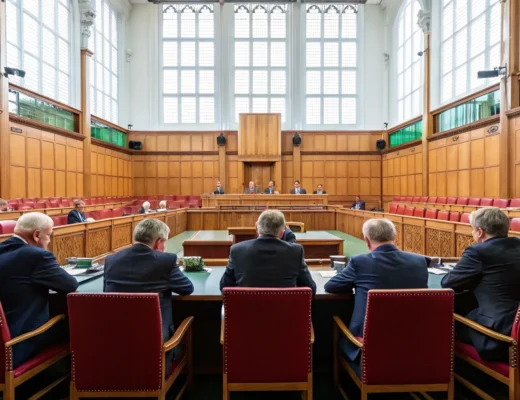The Government is considering changes to the state pension system to address a £22 billion funding shortfall. Chancellor Rachel Reeves and Prime Minister Keir Starmer have warned of a “painful” Autumn Budget, raising concerns that the state pension could become less generous. Experts say the current state pension system is becoming increasingly costly.
Mike Ambery, a retirement savings director at Standard Life, noted that the cost is likely to increase further in the future. The Government has committed to maintaining the triple lock, where the state pension increases each year by the highest of wage growth, inflation, or 2.5%. However, there have been no commitments regarding the requirements needed to qualify for the full state pension.
Ambery discussed two potential measures Labour may consider: increasing the number of years required for National Insurance (NI) contributions or raising the state pension age. He cautioned that both options have drawbacks. “Increasing the number of NI years could cut costs,” Ambery said, “but there’s little evidence to suggest it would heavily influence people’s retirement decisions.
State pension reforms under consideration
Additionally, some individuals in most need of the state pension may be unable to work an additional five or ten years, leading to hardship.”
Accelerating the rise in the pension age, currently set to increase to 67 by 2028 and 68 by 2046, could also be considered for affordability reasons. “Such a change would disproportionately impact the less well-off, who have lower savings and often receive the state pension for shorter periods due to lower life expectancy,” Ambery explained.
Making annual payment increases less generous raises similar concerns, as poorer Britons who rely heavily on the state pension would be worst affected. Ambery suggested another solution could involve increasing National Insurance rates or ending the salary sacrifice policy on pension contributions. Each measure would be unpopular and impact retirement plans across the wealth spectrum, potentially increasing hardship in the years leading up to and after retirement,” Ambery stated.
He emphasized that even with high yearly increases in recent years, the state pension still falls short of the Pension and Lifetime Savings Association’s (PLSA) ‘minimum’ standard of living. The PLSA suggests a single person needs at least £14,400 annually for a basic retirement, while a couple needs £22,400. Currently, the full new state pension pays £11,502.40 per year, requiring a single state pensioner to find nearly £2,900 more annually to meet basic needs.
With the government considering ways to bridge the funding gap, Britons are urged to review their private pension savings to ensure they can maintain their desired standard of living in retirement. As potential changes loom, individuals need to remain informed and possibly adjust their financial planning accordingly.







